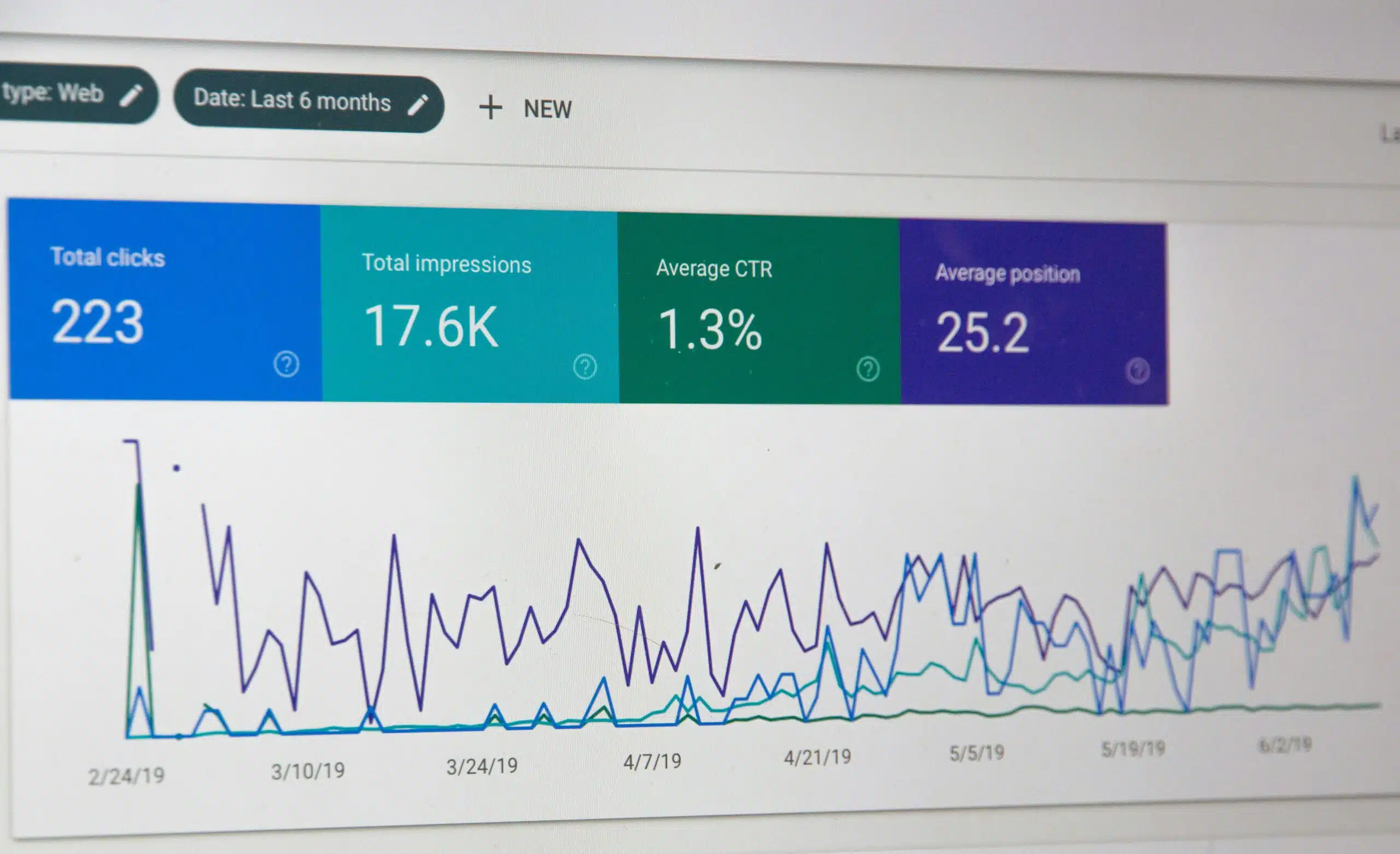Marketing analytics tools are essential for businesses looking to improve their strategies and results. With the right solutions, marketers can track performance, understand customer behavior, and make data-driven decisions. This article will compare top marketing analytics solutions, focusing on key features, benefits, and common challenges faced when using these tools. Readers will learn how to choose the right solution to enhance their marketing efforts and address issues like ineffective campaigns or unclear metrics. Your success in digital marketing starts with understanding which analytics tools can best meet your needs.
Key Takeaways
- Marketing analytics tools help businesses measure and improve campaign performance through data insights.
- Real-time data processing enables marketers to make timely decisions for better engagement.
- Customizable reporting options allow marketers to focus on relevant data and enhance decision-making.
- Integration capabilities with other platforms create a seamless data management ecosystem for marketers.
- Businesses can benefit from free marketing analytics tools like Google Analytics to optimize strategies effectively.
What Are Essential Marketing Analytics Tools?

Marketing analytics tools are crucial in helping businesses measure and improve their performance. These applications facilitate the collection and analysis of data, allowing marketers to identify friction points in their campaigns. With insights gained from marketing analytics software, organizations can make data-driven decisions, enhancing their strategies effectively.
Many modern marketing analytics solutions harness the power of machine learning to provide predictive insights. This technology processes vast amounts of data and highlights trends that might not be immediately obvious. By employing these advanced analytics tools, businesses can optimize their marketing efforts and better anticipate customer needs.
Data governance is another critical aspect of marketing analytics tools. It ensures that data is accurate, secure, and compliant with industry standards. Effective governance allows marketers to trust their analytics data, leading to improved strategy formulation and, ultimately, better campaign results.
Key Features of the Best Marketing Analytics Tools

The best marketing analytics tools offer user-friendly dashboards that simplify data navigation and insights. Real-time data processing allows for immediate decision-making, while customizable reporting options cater to unique marketing mix strategies. Integration capabilities ensure these tools work seamlessly with existing databases and data warehouses, helping to minimize risk and maximize campaign effectiveness.
User-Friendly Dashboards
User-friendly dashboards are a vital element in the best marketing analytics tools, enhancing usability for marketers. For example, Whatagraph offers an intuitive user interface that allows users to visualize data easily, empowering them to create effective landing pages and reports without needing extensive technical skills. Such usability ensures that businesses of all sizes can scale their marketing efforts efficiently, making data-driven decisions swiftly to improve their overall strategies.
Real-Time Data Processing
Real-time data processing is a pivotal feature of top marketing analytics tools that significantly benefits marketers. This capability allows for immediate access to fresh statistics, enabling users to execute timely cohort analyses that can reveal customer behavior patterns. By integrating marketing automation with real-time insights, businesses can swiftly adjust their strategies, ultimately leading to a higher return on investment by maximizing campaign engagement.
Customizable Reporting Options
Customizable reporting options are essential for effective marketing analytics tools, allowing users to tailor insights to their needs and preferences. With the capability for personalization, marketers can focus on relevant data points that enhance productivity and support data-driven decision-making. Utilizing sampling techniques within these customizable reports ensures that organizations can analyze data processing efficiently, leading to actionable insights that drive campaign success.
Integration Capabilities With Other Platforms
Integration capabilities with other platforms are essential for effective marketing analytics tools as they create a seamless ecosystem for data management. By connecting digital marketing solutions to both online and offline data sources, businesses can enhance their workflow and ensure a comprehensive view of their campaigns. For instance, tools like Tableau offer strong integration options, allowing marketers to centralize insights and optimize strategies more efficiently across multiple channels.
Top Marketing Analytics Tools for Achieving Success

Improvado, Domo, Salesforce Marketing Cloud Intelligence, and Adobe Analytics lead the way in marketing analytics solutions, each enhancing how businesses manage export processes and tackle raw data. Google Analytics, Supermetrics, Mixpanel, HubSpot Marketing Hub, and Tableau also contribute significantly, ensuring data integrity and leveraging data science for insights across social media and other platforms. The following sections will closely examine these tools and their unique features.
Improvado
Improvado is a powerful web analytics tool that delivers omnichannel insights for businesses looking to enhance their customer experience. Its ability to integrate data from multiple sources provides a comprehensive view of customer interactions, allowing marketers to refine user experience and boost customer satisfaction. With Improvado, organizations can streamline their analytics processes, making informed decisions directly impacting their marketing strategies and overall performance.
Domo
Domo stands out as an advanced marketing analytics platform designed to enhance business performance through informed decision-making. Domo enables organizations to optimize their marketing strategies effectively by providing users with comprehensive visibility into their touchpoints. Its seamless integration with various content management systems ensures that data from search engine marketing and other channels is centralized, empowering teams to deliver exceptional customer support and enhance overall engagement.
Salesforce Marketing Cloud Intelligence
Salesforce Marketing Cloud Intelligence is a leading analytics software that empowers businesses with powerful measurement tools to assess and improve their marketing performance. Featuring a user-friendly drag-and-drop interface, the platform simplifies the onboarding process for teams, allowing marketers to visualize trends and insights effortlessly. By leveraging Salesforce Marketing Cloud alongside established solutions like Adobe Analytics, companies can gain a comprehensive view of their marketing efforts, making informed decisions that drive success.
- Powerful measurement capabilities
- User-friendly drag-and-drop interface
- Seamless onboarding process
- Integration with Adobe Analytics for enhanced insights
- Comprehensive view of marketing performance
Adobe Analytics
Adobe Analytics stands out as a leading solution for businesses harnessing big data to enhance customer engagement. With its powerful tools, companies can turn data into actionable insights that reveal the truth behind customer behavior and preferences. By utilizing Adobe Analytics, marketers can combine intuition with hard data, optimizing strategies that drive results and strengthen their backlink strategies across various channels.
Google Analytics
Google Analytics is a foundational tool for marketers aiming to enhance their data analysis capabilities. With its robust features, Google Analytics provides insights that pave the way for effective predictive analytics, allowing businesses to anticipate customer behavior trends on the curve. By regularly utilizing this platform for in-depth research, organizations can make informed decisions that lead to successful marketing strategies and improved overall performance.
Supermetrics
Supermetrics is a versatile tool that simplifies data integration from various platforms like Sprout Social, making it easier for marketers to analyze customer behavior. By consolidating insights into Looker Studio, Supermetrics allows businesses to visualize data trends effectively, enabling a deeper understanding of campaigns. Its pricing structure offers flexibility to accommodate different budgets, ensuring that organizations can access essential analytics without financial constraints.
Mixpanel
Mixpanel stands out among marketing analytics platforms for its ability to track user interactions across the conversion funnel, providing deep insights into customer journeys. Its intuitive interface offers users a manageable learning curve, making it suitable for marketers seeking to leverage Martech tools without feeling overwhelmed. By effectively visualizing data trends and user behaviors, Mixpanel empowers businesses to build targeted strategies that increase engagement and enhance overall performance.
| Tool | Key Feature | Strength |
|---|---|---|
| Mixpanel | User Interaction Tracking | Deep Insights into Conversion Funnel |
| Adobe Analytics | Big Data Access | Actionable Insights for Engagement |
| Salesforce Marketing Cloud | Measurement Tools | User-Friendly Interface |
| Google Analytics | Predictive Analytics | Foundation for Data Analysis |
HubSpot Marketing Hub
HubSpot Marketing Hub is a comprehensive solution designed to help businesses enhance their content marketing efforts while effectively tracking customer interactions. It seamlessly integrates with the Google Cloud Platform, enabling marketers to analyze metrics such as page views and user engagement, which are crucial for refining their strategies. With a strong focus on customer service, HubSpot equips organizations with robust tools to optimize outreach and build lasting relationships with clients.
- HubSpot offers seamless integration with Google Cloud Platform.
- It enables marketers to track important metrics like pageviews.
- Customer service tools help improve client relationships.
- HubSpot enhances content marketing strategy effectiveness.
Tableau
Tableau stands out as an innovative marketing analytics tool that offers users exceptional capabilities for visualizing data and analyzing user behavior effectively. Its robust mobile app lets users access insights on the go, making informed decisions anywhere, anytime. Tableau prioritizes data security, ensuring that organizations maintain ownership and control over their data while leveraging powerful analytics to enhance marketing strategies.
Benefits of Using Marketing Analytics Tools

Using marketing analytics tools allows organizations to enhance performance measurement, leading to more accurate evaluations of campaigns. Data-driven marketing decisions improve strategies while minimizing churn rates and boosting return on investment. Streamlined reporting processes simplify social media analytics, allowing marketers to focus on key metrics that drive success in their marketing efforts.
Enhanced Performance Measurement
Enhanced performance measurement is a key advantage of using marketing analytics tools, allowing organizations to evaluate their strategies with pinpoint accuracy. For example, businesses can analyze the effectiveness of their email marketing campaigns by measuring open and click-through rates, while sentiment analysis helps gauge customer reactions on social networks. By streamlining data preparation, these tools enable marketers to focus on what truly matters, leading to informed decisions that improve overall campaign success.
Data-Driven Marketing Decisions
Data-driven marketing decisions empower brands to navigate their strategies with confidence and precision. By incorporating analytics tools like Amplitude, businesses can analyze consumer interactions across various platforms, including chatbots and website servers. This comprehensive understanding allows marketers to tailor their campaigns effectively, addressing customer needs and preferences, ultimately enhancing engagement and driving conversion rates.
Increased Return on Investment
Increased return on investment (ROI) is a significant benefit of using marketing analytics tools. By implementing effective data cleansing practices, marketers can ensure their mailing list is of high-quality, directly impacting their campaigns’ success. Additionally, leveraging business intelligence through advanced analytics allows organizations to refine their marketing pipelines, optimizing efforts across search engine strategies and enhancing overall performance.
- Implement data cleansing to improve mailing list quality.
- Utilize business intelligence for better insights.
- Optimize marketing pipelines for increased effectiveness.
- Enhance search engine strategies through targeted analytics.
Streamlined Reporting Processes
Streamlined reporting processes are essential advantages of leveraging marketing analytics tools. These solutions enable organizations to efficiently compile and visualize data, allowing for quick insights into the customer journey and sales funnel. For instance, utilizing tools integrated with platforms like BigQuery enhances competitor analysis through detailed behavioral analytics, ensuring teams can make informed decisions based on up-to-date data.
| Feature | Benefit |
|---|---|
| Streamlined Reporting | Quick access to insights and trends |
| Behavioral Analytics | Understanding customer engagement |
| Integration with BigQuery | Enhanced competitor analysis capabilities |
Common Challenges in Marketing Analytics

Several challenges arise when implementing marketing analytics solutions. Data integration issues can hinder compiling comprehensive insights from various sources. Inaccurate data collection can mislead strategies, significantly affecting revenue and customer engagement. Additionally, resistance to change within teams may obstruct the adoption of tools like Microsoft Excel for effective media monitoring. Understanding these challenges is crucial for success.
Data Integration Issues
Data integration issues can significantly hinder marketing analytics efforts, impacting visibility and efficiency. When businesses struggle to compile information from various sources, they may miss crucial insights for effective decision-making. Without a streamlined approach, teams might lack a comprehensive understanding of their campaigns, ultimately reducing their ability to automate processes and limit the dimensions of their analysis.
- Visibility limitations hinder data-driven decisions.
- Increased efficiency is crucial for marketing success.
- A comprehensive understanding improves campaign effectiveness.
- Automation can alleviate integration challenges.
- Addressing dimensions of data ensures thorough analysis.
Inaccurate Data Collection
Inaccurate data collection poses a significant hurdle for marketers using analytics tools. This challenge can lead to misleading insights, affecting vital elements like keyword research and optimization strategies. For instance, using tools like Heap Analytics, teams must ensure that their data model is correctly set up to prevent errors that could distort results and undermine campaign effectiveness. Understanding and addressing these data accuracy issues is key to making informed decisions that propel marketing efforts forward.
| Challenge | Impact | Solution |
|---|---|---|
| Inaccurate Data Collection | Leads to misguided strategies | Ensure proper data model setup |
| Search Engine Optimization | Improper insights hinder SEO efforts | Utilize reliable analytics tools |
| Keyword Research | Impacts content creation | Verify data accuracy |
Resistance to Change Within Teams
Resistance to change within teams can create significant obstacles in effectively utilizing marketing analytics solutions. When teams hesitate to adopt new tools like TapClicks, it can hinder their ability to aggregate data from various sources and gain a comprehensive view of their marketing efforts. This reluctance often stems from a lack of understanding of how these tools can streamline processes and enhance decision-making, making it crucial for organizations to demonstrate the benefits and ease of use associated with these platforms.
Frequently Asked Questions
What Are the Best Marketing Analytics Tools on the Market?
The best marketing analytics tools on the market include solutions such as Improvado, Domo, Salesforce Marketing Cloud Intelligence, and Adobe Analytics. Each tool offers unique features that cater to different business needs, providing insights into customer interactions and campaign performance. For instance, marketers often turn to Google Analytics for foundational data analysis, while Mixpanel shines in tracking user journeys, demonstrating the diverse options available to enhance data-driven decision-making.
How Do Marketing Analytics Tools Improve Success?
Marketing analytics tools improve success by enabling businesses to derive actionable insights from their data, allowing for informed strategies. These solutions help identify customer trends and optimize campaigns effectively. For example, utilizing tools like Improvado can reveal which marketing channels drive the most engagement, helping marketers allocate resources where they will be most effective:
- Identify customer trends and behaviors.
- Optimize marketing channels for improved engagement.
- Make data-driven decisions for strategic planning.
- Enhance resource allocation based on performance insights.
What Should I Look for in a Marketing Analytics Tool?
Organizations should focus on key features that meet their specific needs when selecting a marketing analytics tool. They should consider user-friendly interfaces, as these simplify navigation and make data analysis more accessible for all team members. Additionally, integration capabilities with existing systems are crucial for ensuring a seamless flow of information, allowing businesses to optimize their marketing strategies effectively:
| Feature | Importance |
|---|---|
| User-Friendly Interface | Enhances accessibility for all team members |
| Integration Capabilities | Allows seamless flow of information across platforms |
| Customizable Reporting | Enables tailored insights for specific goals |
Can Small Businesses Benefit From Marketing Analytics Solutions?
Small businesses can greatly benefit from marketing analytics solutions, as these tools provide essential insights into customer behavior and campaign effectiveness. Using analytics, they can identify trends that drive engagement and optimize their marketing strategies accordingly. For example, a small business might use Google Analytics to track website traffic, helping them understand which products or services resonate most with customers. This will ultimately lead to improved sales and better resource allocation.
Are There Free Marketing Analytics Tools Available?
Yes, several free marketing analytics tools are available that can provide valuable insights for businesses with limited budgets. Platforms like Google Analytics offer comprehensive features, allowing users to track website performance and understand customer behavior without any cost. These tools empower marketers to make data-driven decisions and optimize their strategies effectively, making them ideal for both small businesses and seasoned marketers looking for budget-friendly options.
Conclusion
Top marketing analytics solutions are vital for businesses aiming to maximize their campaigns’ effectiveness and reach. By leveraging these tools, organizations can derive actionable insights that drive strategic decision-making and enhance customer engagement. With features like real-time data processing and customizable reporting, marketers can streamline their efforts and improve overall performance. Prioritizing the right analytics tools ultimately leads to stronger marketing outcomes and a competitive advantage in the marketplace.





